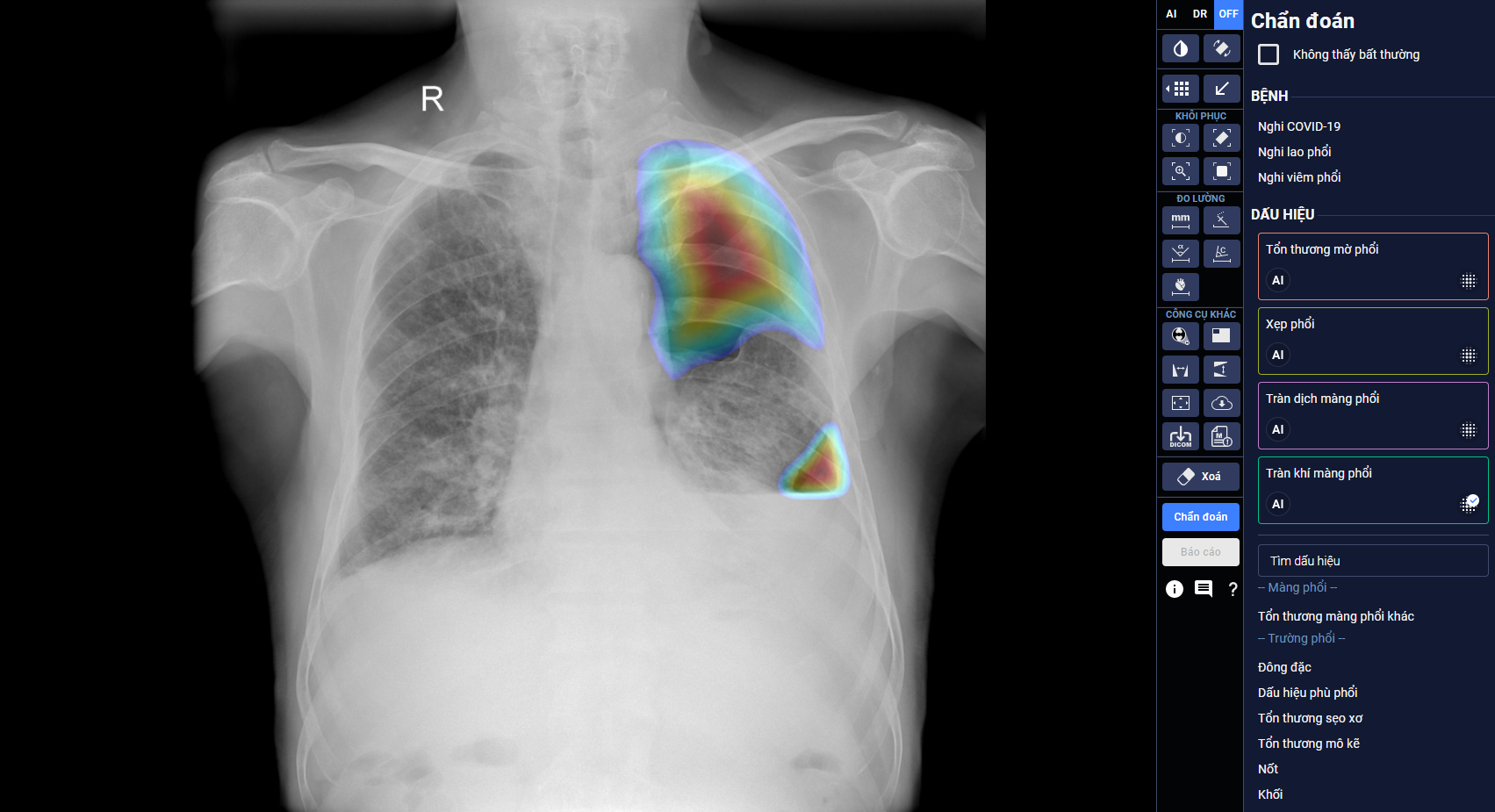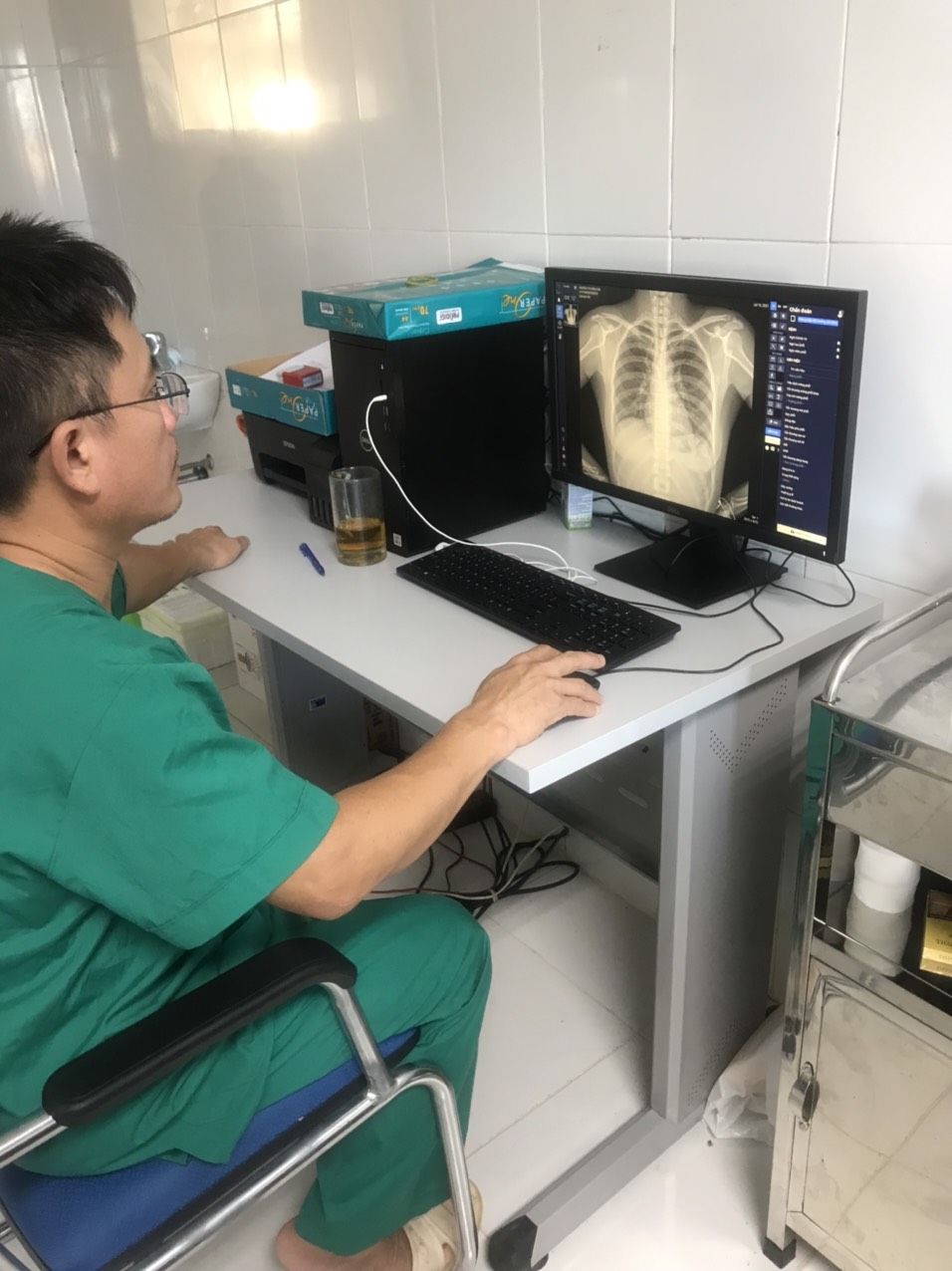When the COVID-19 pandemic swept Vietnam, ten hospitals, including nine in Ho Chi Minh City and one in Ky Anh (Ha Tinh), used AI DrAid™ software to monitor the progression of SAR-CoV-2 virus in patient's lungs, assist doctors in COVID-19 diagnosis and prognosis. DrAid™ automatically analyzes lung damage status based on big data, including more than 1.3 million chest X-ray images and a dataset of approximately 10,000 COVID-19 positive images and 155,000 negative images in Vietnam and the world. DrAid™ is the very first product of VinBrain, a subsidiary of Vingroup, which focuses on AI-based products for healthcare with the combination of state-of-the-art technologies and big data. “DrAid™ brings together artificial intelligence, Cloud computing platform, and mobile ecosystem and proves its high reliability across the nation, and soon be expanded to global market" as said by Mr. Truong Quoc Hung, CEO of VinBrain, in an interview via Zoom with Forbes.
AI offers diverse opportunities, including day-to-day care monitoring, early disease detection, treatment analysis, and planning. The application of AI and big data in healthcare mimics human perception in analyzing, representing, and understanding complex medical data. AI algorithms are capable of giving relative suggested conclusions only based on big data input. DrAid provides initial diagnostic results to help early suspected COVID-19 cases detection by analyzing X-ray images directly transmitted to the cloud from imaging machines. Compared with PCR testing (usually only conducted with symptoms and a high risk of infection), this method is considered more economical, early detection, easy to deploy, and scale-up. DrAid™ is also being used in 84 hospitals and health facilities in Vietnam in screening and detecting over 21 abnormal findings or diseases of the heart-lung - bone within five seconds. The products reach an accuracy of "over 89%, which helps shorten the time and improve diagnostic imaging quality.”
AI applications for diagnostic imaging have been developed in many countries. In Vietnam, there is also some AI software for healthcare. However, those softwares have not been widely deployed and are not so complete as DrAid™, according to Mr. Hung, who is B.A.Sc. Engineering Science at the University of Toronto (Canada) and MBA, Information Technology at the University of Toronto, Phoenix (USA), has more than 25 years of working experience in the industry.
X-ray has been a popular imaging technique for many decades because of its reasonable price and ease of implementation, helping doctors evaluate overall health, especially heart-related diseases, respiratory, and musculoskeletal. VinBrain chose to develop its first product to support the diagnosis of heart-lung-bone diseases based on X-ray images to quickly access and solve the vast needs of the Vietnamese healthcare industry. Many lung diseases and abnormalities are prevalent and dangerous diseases, which tend to increase daily in Vietnam due to air pollution and tobacco. Fracture is also considered a disease that radiologists easily overlook on X-ray images.
Currently, approximately 4.7 billion people worldwide are lack access to diagnostic imaging services. Only in the United States, there are estimated around 12 million people miss diagnoses every year. Meanwhile, according to WHO, roughly 70 – 80% of diagnoses can be solved by X-ray. The shortage of radiologists in Vietnam is also considerable: only three radiologists on 100 thousand people while the well-balanced number should be eight.

DrAid™'s user interface
VinBrain launched DrAid™ v1 on June 14, 2020, and deployed in the first phase at Vinmec International Hospital system, a private general hospital system under Vingroup, followed by other medical facilities and lung hospitals. During the pandemic outbreak, DrAid™ for COVID-19 diagnosis and treatment was developed and inherited from the results of the ministerial scientific research project "Application of artificial intelligence to use chest X-ray in the diagnosis of COVID-19.” The Scientific Council of the Ministry of Health recognized and recommended DrAid as "Product has practical value in supporting the prognosis of COVID-19treatment in hospitals and medical facilities in Vietnam ". Since then, the product has been put into use at treatment facilities for COVID-19 patients.

Doctors at Ky Anh hospital using DrAid™ for COVID-19
According to the Digital Health Market report by KPGM and the Oxford University Clinical Research Unit by the end of 2020 in Vietnam, only a few among 1,400 hospitals in Vietnam have developed AI products in some ways. Vietnam's medical data is scattered, subject to each hospital and region, therefore, collecting data is really a big challenge in developing AI products in healthcare. Hung said that there are a lot of data required to build a reliable diagnosis and treatment AI model including clinical data, medical imaging, test results to the patient's full medical record. It is very important to clean data and build a standardized labeling process for each disease. “AI needs big data – clean – centralized – consistent,” he said.
"While in medicine in general and diagnostic imaging in particular, the consensus among doctors only accounts for 60-70% of diagnostic decisions, and there are a few methods of reading images according to US or European standards". VinBrain has collaborated with Stanford - the world's leading university and top doctors in Vietnam to standardize the diseases atlas and labeling process. As per Mr. Hung, VinBrain is in the progress of getting approval for DrAid™ by the US Food and Drug Administration (FDA), opening the path to this most demanding market, following by European and Asian markets. The world has 37 developed countries out of 195 countries worldwide. After more than ten years of development, almost all of them are convinced that the global cloud computing platform is a prerequisite for high technology development. In addition, the lack of a legal framework and AI-related industry standards also makes it difficult for VinBrain to convince doctors to use DrAid widely. "We also aim to solve more comprehensive problems, specifically telehealth, in other words, telehealth between patients and medical professionals. Telehealth would be the connector where medicine extends their arms with support from technology, especially after COVID-19, this trend will become more popular," Hung said.
Top